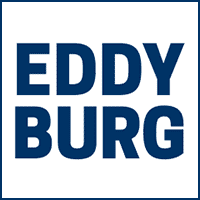

increasingly more pervasive, deafening and sneaky propaganda. Is there democracy without information?
During the session of the 14th of April, the City Council approved a request for funding to the Rome National Government in order to finance research aimed at designing a sublagunar subway and restoring the Arsenale-Tessera area. You can be pro or against the sublagunar subway: the dilemma is serious because on one hand you have the appealing possibility of quick connections for residents, on the other possible risks of the “caranto”, the upspringing of new touristic hotel areas and a potential further mass tourism invasion. Many Venice citizens are puzzled and unsure. What they need is information, which should be accurate, understandable and – most of all - unbiased. But what impartiality can be guaranteed by a research funded by the very same Council that, right or wrong, has been struggling for years for the approval of the project? Where can data and figures be found to support not only arguments in favor of the project, but against it too? The Council has been working on this for years. Its employees are paid to bring the project forward. Is there someone on the other side, to support alternative points of view?
The same problem, but hundreds times bigger, has risen and still stands for the MOSE project. The Consorzio Venezia Nuova, which has been appointed for the works, has already spent tens, maybe hundreds of billions liras to prepare the project, to fight against oppositions and to put forth biased information. Has anyone tried to counter it? There is an immense disproportion between the two sides. The opposers are nor fanatics nor environment fundamentalists; they are women and men who have some serious, sound doubts and who suggest interesting alternatives. They are doing this because they are driven by the love for their city and maybe by the inescapable rational approach which things, expenses and works should follow.
Let’s look at them: who are they, how do they fight? There is “Italia Nostra” ( a n.g.o. for environment and cultural heritage): have you ever seen their offices? Two tiny and grimy rooms let by the Alpini Association. The doors do not close, the toilet is down the basement. The president is a retired engineer who works there full time, and for free. The few councilors are Venetians, professionals, teachers and so on, who are dedicating all of their free time. They don’t even have the money for one part-time employee. They fight hard just to pay their phone or electricity bills. They work without being paid, and spend their own money. They are not driven by political ambitions, they do not look for power (they would jump on the other side if they would!). They are constantly seeking help from hydraulic specialists, from world weather experts, from engineers, and once in a while they are able to find some other idealist that work for free and hold some conference.
Besides Italia Nostra there are WWF, VAS, and some other small local group (Estuario Nostro, Airis, a few more). All volunteers, all without funds, all very tiny, fight against the more-than-billionaire Consorzio colossus. They do miracles. Not to mention Pax in Aqua, an association that has been funded in the past 5 years only by the scanty subscription fees of their supporters (3 millions lira per year) to fight against water-taxi drivers, lancioni, shippers, sailors. Their counterparts have offices that work full time and with generous funds; we have to study the documents, prepare our relations, and go to countless meetings arranging figures and speeches. I’d like to add one more note.
On the 15th of April the Gazzettino publishes the complaint of a lady which lives in Riva dei Sette Martiri. The cruising ships, even the small Greek ones, make her windows shudder at their passage. The same thing has been reported by the company Bucintoro, which has its offices at the end of Dogana. It’s easy to imagine, the lady says, the damage caused to the sea bed and to the shores by the giant propellers of those ships. But, here is the swift funding for a reassuring study: the Port Authority has commissioned a research that shows how the waves caused by the big ships are virtually irrelevant. Could the lady, could we Venice citizens, pay other professionals to prepare an alternative research, to make them study the (evident) underwater effects instead of how tall are the generated waves, like the Port experts did? Obviously not. Who could pay those professionals? The lady who lives ashore? This is the state of the art. Those who have an immediate economic interest move quickly, spend money and put forth biased – when not misleading – information. Those who refuse being misinformed can count only on their good will, on the courtesy of the press (the unbiased one) and on the voluntary work of generous lawyers and experts. It’s not enough. Maybe, in a really democratic country, the institutions should give funds to those groups who spend so much of their time and professionalism for common causes. But the institutions know very well that those troublemakers would rise problems and interfere with the projects of many economic and politic lobbies. They know better than to help those who are perceived as a potential thorn in the side.